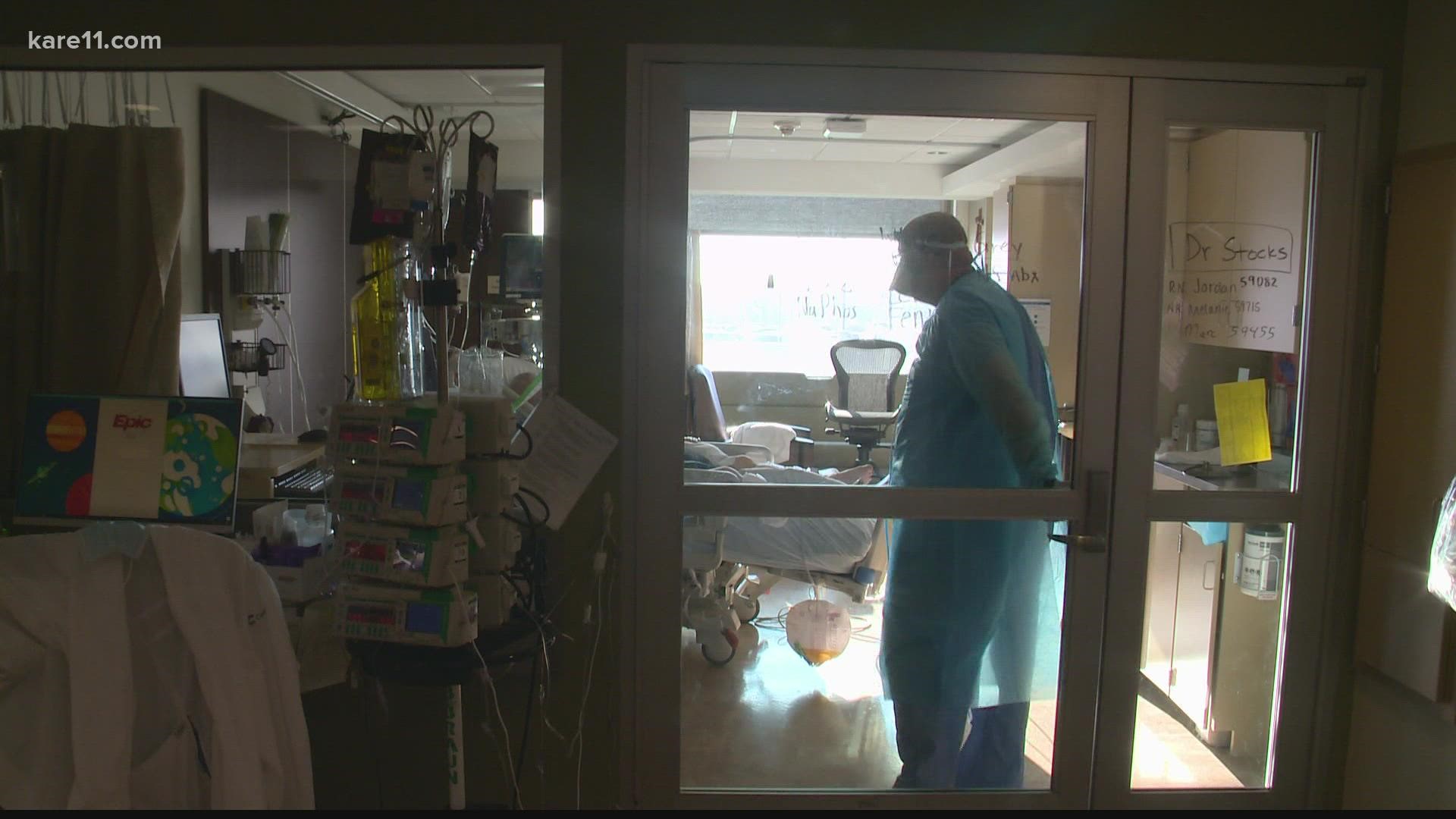MINNEAPOLIS — Omicron is now the dominant COVID-19 variant in many countries, spreading faster than any other strain.
But why? And what makes it so contagious?
Dr. Mark Sannes is a HealthPartners infectious disease doctor who says omicron is contributing to half a million new cases in the United States every day.
"It's one of the most infectious viruses we've had to deal with," said Dr. Sannes. "Your risk of getting COVID is 10- to 20-fold higher if you’re unvaccinated."
Doctors say the omicron variant is mutating and is more efficient at replicating itself. In fact, one person can spread it to three more — in what scientists call its "reproduction number."
"Compare that to something like measles that may be 10 or even 20 other people; you can see the level of infectiousness," said Dr. Sannes.
There's also data showing the virus can now dodge our immune system and antibodies — built up in our bodies from being fully vaccinated or from a previous infection — leading to more breakthrough cases.
"Most of those infections are mild, but they are continuing this chain of infection nonetheless," said Dr. Sannes. "And while it’s causing a milder illness in general, we don’t know what that effect is going to look like on the unvaccinated population."
Dr. Sannes says early evidence shows omicron is more mild because it stays in the upper respiratory system, rather than the lungs. This type of infection leads to a runny nose, sinus congestion and a cough, versus pneumonia, which is often seen with the original COVID strain.
"I think we were hopeful we’d have a larger percentage of the population vaccinated, and even if we did see a virus more transmissible, we’d be dealing with milder infection; something that wouldn’t be stressing our hospitals the way it is right now," said Dr. Sannes.
Many sick people are still filling hospitals. HealthPartners' ICU has been at capacity for two months now. Dr. Sannes says nine out of 10 patients on a ventilator in their hospital system right now are unvaccinated.
This as omicron is expected to surge later this month.
"We are still trying to empty out from the last of the delta surge right now in our hospitals," said Dr. Sannes.
Only when hospitals aren't so stressed does the doctor say this virus may become more manageable and less newsworthy.
"Then we’re dealing with an endemic respiratory virus that’s causing mild to moderate illness in people and not putting our intensive care units and our surgical units at and beyond capacity to take care of the folks they need to take care of," said Dr. Sannes.
Watch more on the coronavirus:
Watch the latest reports and updates on the coronavirus pandemic in Minnesota with our YouTube playlist:

